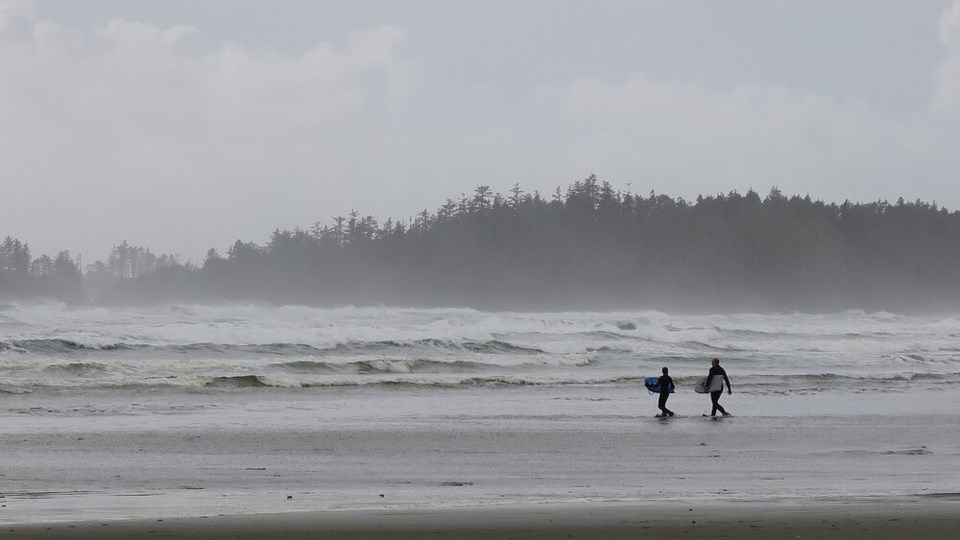Doctors across several Canadian provinces can now prescribe patients a pass to the country’s national parks system in a bid to improve their mental and physical health.
On Monday, Parks sa国际传媒 said it was joining the national nature prescription program known as PaRx, or , which aims to get patients into nature for a minimum of two hours per week.
A growing body of research has shown anxiety and mental health problems, including those triggered by global heating, can be effectively treated by spending time in nature. That can include everything from digging your hands into a backyard garden to exploring the backcountry (though studies have shown increased biodiversity, as well as sweeping views of green space and water, are best).
What matters, say experts, is that patients feel like they have had an experience in nature.
“We need to reduce barriers to nature,” said Dr. Melissa Lem, a Vancouver-based family physician who launched PaRx in 2020 with the BC Parks Foundation. “(The park pass) makes the message even more powerful and easier to follow.”
“It is a big deal.”
In a written statement, Minister of the Environment and Climate change Steven Guilbeault described the new collaboration as a “breakthrough” in how practitioners treat mental and physical health. With the impacts of COVID-19 still felt across much of the country, it couldn’t come at a better time, he said.
Lem says the nature prescription program is expected to spread across every province and territory by the end of 2022.
With Parks sa国际传媒 backing the program, health care professionals in sa国际传媒, Ontario, Saskatchewan and Manitoba can now prescribe a Parks sa国际传媒 Discovery Pass — worth over $70 — to a patient.
The pass, which pays for itself in roughly seven visits, offers unlimited admission for a year at over 80 national parks, national historic sites and national marine conservation areas, territory that together covers more than 450,000 square kilometres of land and water.
“When we can offer real incentives for patients. I think that will be a motivator,” said Lem. “It’s part of the whole master plan.”
Other parts of that plan include reducing barriers to transportation so new Canadians and people in inner-city neighbourhoods — two populations who often struggle to access green space — can walk along a forest or mountain trail.
“Next on our list is approaching major transit organizations… giving people free transit that, say, stops at a park,” said Lem. “We’re also hoping it will inspire other people.”
Lem says the park passes will be prioritized for people living close to national parks, historic sites and marine conservation areas. For people in British Columbia, that could include Vancouver Island residents near Pacific Rim National Park Reserve or Mount Revelstoke National Park in the province’s Interior, among five national parks in the province.
For her patients — and others living in Metro Vancouver, sa国际传媒’s largest urban area — the University of British Columbia has also moved to open up its botanical and to people with a nature prescription.
So far, there are over 1,000 health care professionals across sa国际传媒 prescribing nature with guidance from PaRx. Those who are registered can independently prescribe passes during a patient's regular check-up; prescribers who aren't registered can sign up at the .
Lem says the program encourages time in nature for individuals suffering anxiety, depression and other mental health problems.
Research has shown that access to nature can also reduce chronic diseases (like diabetes, high blood pressure and lung disease), improve birth outcomes and even help children succeed in life.
People are more likely to do something if it’s . With showing doctors, nurses and scientists are among sa国际传媒’s most trusted professionals, health care professionals are uniquely qualified in this role.
The expansion of the nature prescription program comes a week after a study showed extreme climate events lead to increased anxiety levels among Canadians.
Focusing on sa国际传媒’s June 2021 heat dome, the landmark study found over 60 per cent of participants said heat dome made them either much or somewhat more worried about climate change. Overall, the event led to a 13 per cent average rise in anxiety over the effects of climate change.
Nature prescriptions, says Lem, who advised on the study, promise to treat those symptoms and inspire a solution.
Studies have found immersing yourself in nature offers a : the more people are connected to nature, the more likely they are to protect it.

